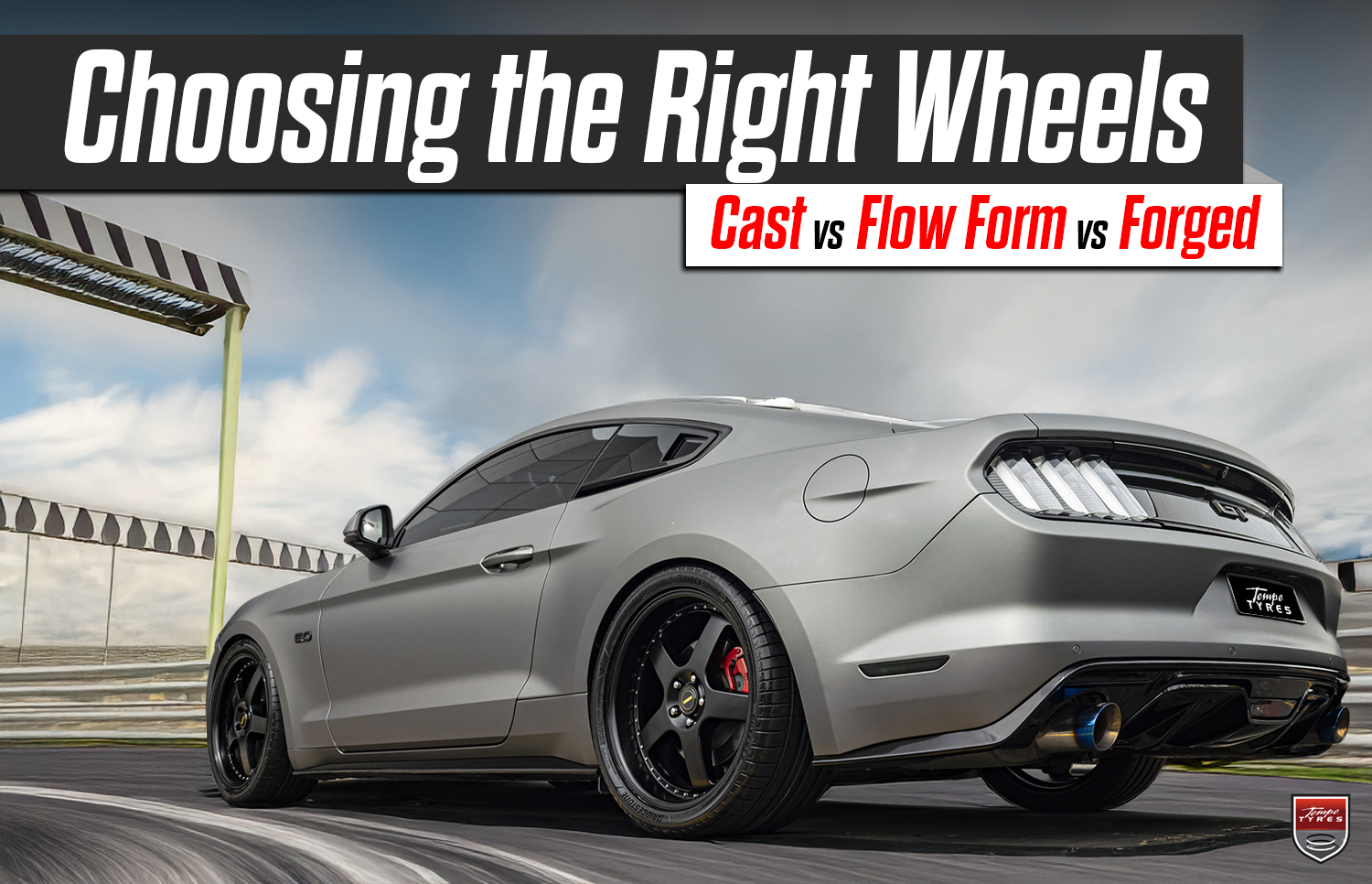
Selecting the right wheels for your vehicle requires understanding the nuances of different manufacturing processes and their impact on performance, durability, and cost. This guide explores the distinctions between cast, flow-formed, and forged wheels to help you make an informed choice.
Manufacturing Process: Cast wheels are produced by pouring molten aluminium into a mould, where it solidifies into the desired shape. After cooling, the wheel undergoes machining for precision. The two main casting methods are:
- Pouring- This method relies solely on gravity to fill the mould, resulting in a denser, heavier wheel with moderate strength.
- Drawing- This process uses controlled pressure to force molten aluminium into the mould, producing a stronger and lighter wheel compared to gravity casting.
Advantages:
- Affordable and readily available.
- Aesthetic variety at a low price.
Disadvantages:
- Heavier than flow-formed or forged wheels, reducing overall performance.
- More prone to cracking or failure under high load and stress.
Manufacturing Process: Flow forming blends the principles of casting and forging. It starts with a cast aluminium blank, which is heated and spun while rollers stretch and compress the material into its final shape. This process aligns the aluminium’s internal grain structure, increasing strength and reducing weight.
Advantages:
- Stronger and lighter than traditional cast wheels.
- Offers a cost-effective balance of performance and aesthetics.
- Suitable for moderate performance upgrades.
Disadvantages:
- Higher cost than cast wheels.
- Not as strong or durable as fully forged wheels.
Manufacturing Process: Forged wheels are created from a solid block of aluminium billet. The billet is heated and subjected to extreme pressure, compacting the material into a highly dense structure. The wheel is then machined to achieve precise dimensions and designs.
Advantages:
- Exceptional strength-to-weight ratio.
- High resistance to bending, cracking, and deformation under stress.
- Premium quality with extensive customization options.
Disadvantages:
- Expensive due to the labour-intensive manufacturing process.
- Limited availability compared to cast and flow-formed wheels.
Your choice between cast, flow-formed, and forged wheels depends on your priorities and driving style:
- Cost Efficiency: Cast wheels are the best choice for budget-conscious buyers seeking visual upgrades.
- Balanced Performance: Flow-formed wheels provide a middle ground, combining enhanced strength with affordability.
- Top-Tier Performance: Forged wheels deliver unparalleled strength and weight savings, making them ideal for high-performance vehicles and demanding enthusiasts.
2025
2024
2023
2022
2021
2020
2019
2018
2017
2016